Dummy-spits and kneejerk panic: What’s behind the Coalition split | David Penberthy
The Liberal-National Coalition had a long, proud history of sensible consensus and compromise. Then one politician chucked it all in the shredder, writes David Penberthy.
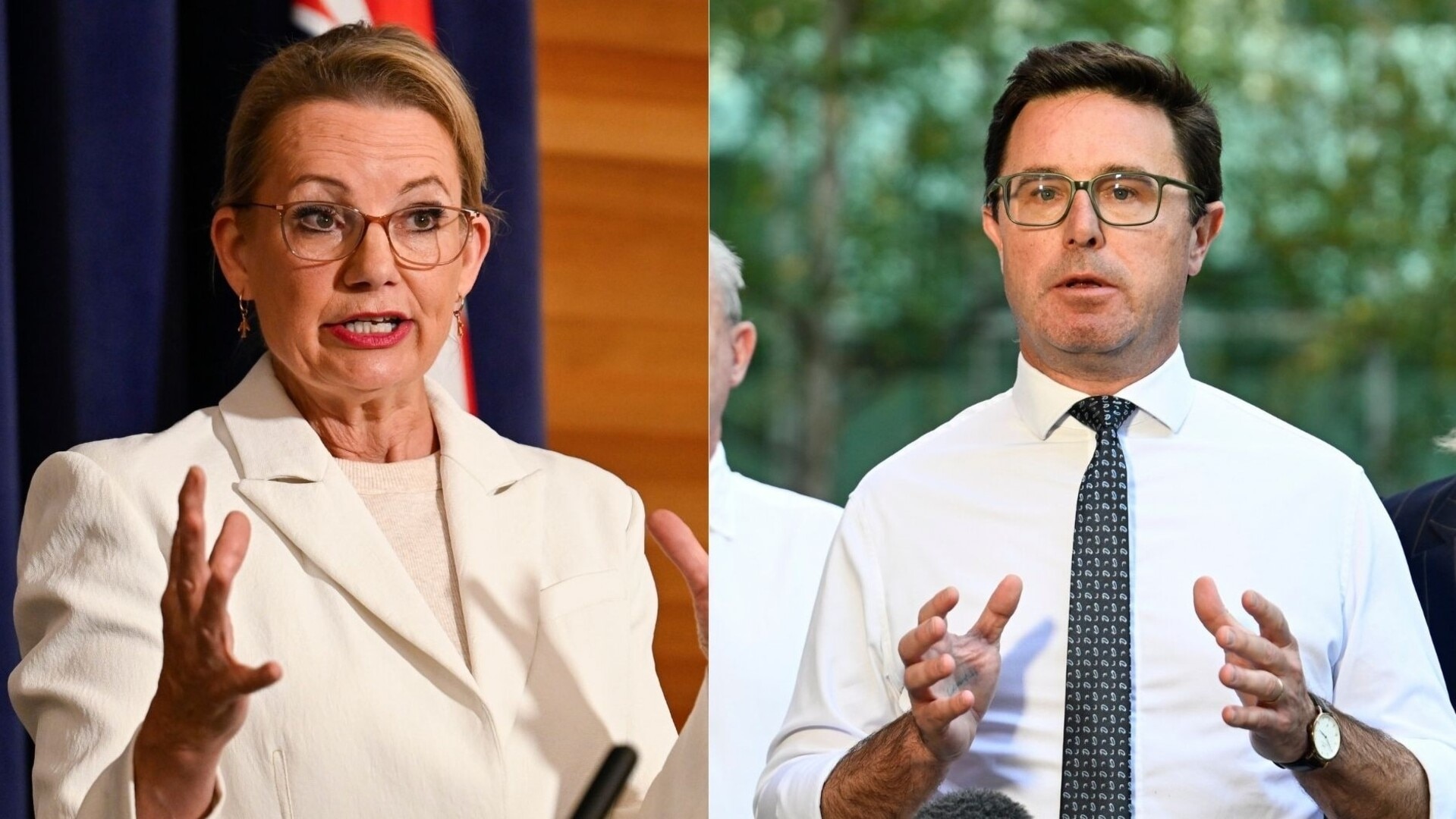
News
Don't miss out on the headlines from News. Followed categories will be added to My News.
Tony Pasin is one of the four – four – remaining federal Liberal MPs in South Australia. He’s a good local member who has a solid grip on his South-East seat of Barker and defied the scale of the national anti-Liberal swing a few Saturdays ago. He’s a head-down bloke who doesn’t rock the boat or dwell on internal politics.
So when Tony Pasin says, as he did this week, that the shredding of the Coalition agreement between the Liberals and the Nationals is “cataclysmic”, and “the greatest act of political self-harm ever seen”, you know it’s pretty serious.
It’s hard to work out why the conservative side of politics has become so skittish, so inwardly focused, so hopelessly organised in this country. It’s a trend worldwide, with the surge by Reform in the UK and the National Front in France coming amid a splintering of the conservative vote and a collapse in support for traditional centre-right parties such as the Tories and Christian Democrats.
But it is genuinely baffling to work out why the Nationals and Liberals have formally torn up an agreement which has helped them present themselves as united, electorally credible, and which on several occasions delivered genuinely good government.
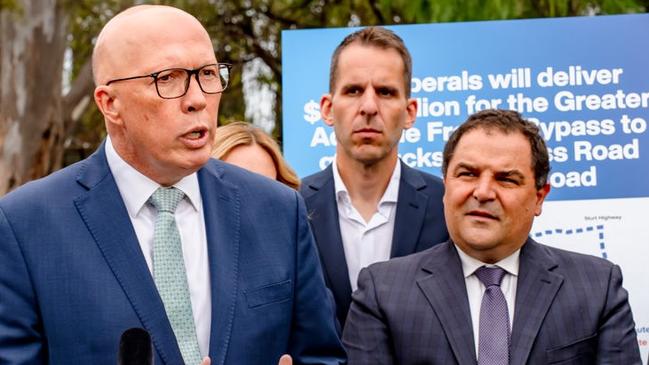
The few years I spent in the Canberra press gallery gave me a front-row seat for one of the most important and noble public policy moments in the history of Australia.
The Advertiser dispatched me to Canberra just a few weeks after the Port Arthur massacre, when the very recently elected Howard government was crafting a policy response to an atrocity which claimed the lives of 35 innocent people.
The gun laws that followed have without argument made Australia a vastly safer place. Even the most rusted-on lefties credit John Howard with that. But it was the then Nationals leader Tim Fischer and his Queensland Senate colleague Ron Boswell who also deserve huge plaudits for the courageous and selfless role they played in backing those laws, at risk of huge political damage in National-held seats.
Rural Australians were understandably offended and annoyed that their lifelong respect for and sensible use of firearms for work and recreation was going to be affected by the actions of a lone, deranged individual in Tasmania. The symbolic moment of their anger was Howard addressing that gun rally in the Victorian town of Sale in a bulletproof vest, on the valid advice of the AFP, but its use being seen as an insult by country people, as if they were a pack of gun-toting yahoos who couldn’t be trusted not to assassinate the PM.
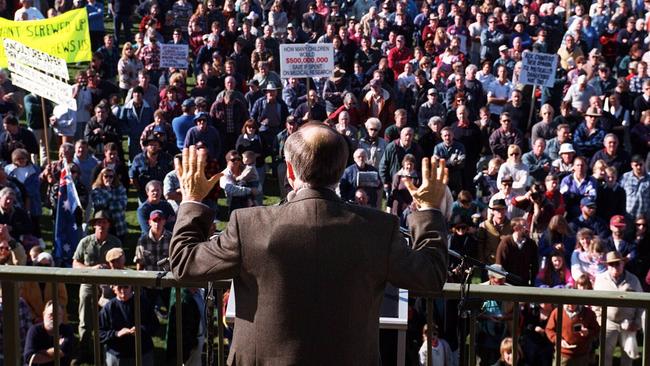
It wasn’t just guns but issues such as trade and infrastructure where Fischer and his successor John Anderson played a vital compromise role at the national level, supporting the abandonment of protectionist policies in favour of free trade, despite enduring complaints from once-cosseted sectors. They also championed projects that benefited other states, in the South Australian context none more important than the Alice Springs to Darwin rail link. They even copped a tariff pause to prop up what was then left of our car industry, even though tariffs made vehicles more expensive for people on the land.
How amazing that all this competence and compromise can end up in a bin under a shredder in David Littleproud’s office.
What we are witnessing here is the pitiable spectacle of two political parties, the Nats and the Libs, which are both completely rattled in their own way. The Nationals, having held almost all their seats, seem to have just had a juvenile dummy spit at the poor-performing Liberals. Their decision to list things such as nuclear power, rural community funding and mobile phone coverage as non-negotiable is absurd, given that with very little negotiation, the Liberals are likely to keep agreeing to those positions anyway. Maybe, having been challenged for the leadership by conservative Senator Matt Canavan, Nationals Leader David Littleproud felt the need to puff his chest out to show he’s not the patsy of the Libs.
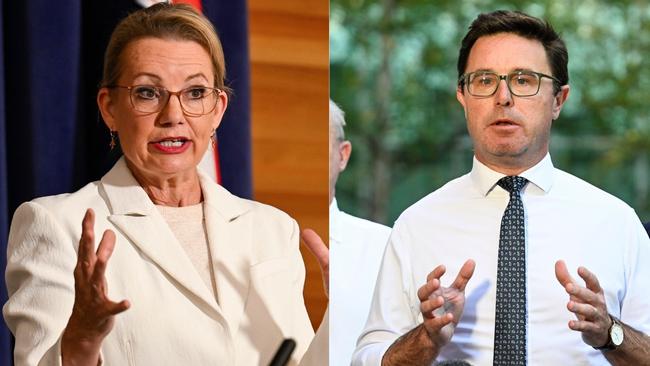
As for the Liberals, many trees have died this past few weeks. Commentators and party figures have pontificated about whether the problem is ideology, personnel, whether they need to be more conservative or less conservative.
To go back to the Howard era, the problem seems obvious, the answer simple.
Howard and his treasurer Peter Costello were synonymous with sound economic management and committed to helping families.
Problems are never as big or as complicated as they seem. The Howard-Costello team kept winning because in the main they stood for a few simple and memorable things – reining in public spending, providing tax cuts, and giving families help when they needed it most through measures such as the baby bonus and the first homebuyers grant.
That’s it.
Compare that to the one memorable Dutton-Taylor promise of cheaper petrol for a short time.
The election figures show a thumping Labor win through the collapse of the Liberal vote in metropolitan Australia. But they also show that 65 per cent of Australians did not vote Labor, and that 40 per cent of them voted for conservative-leaning parties and conservative independents.
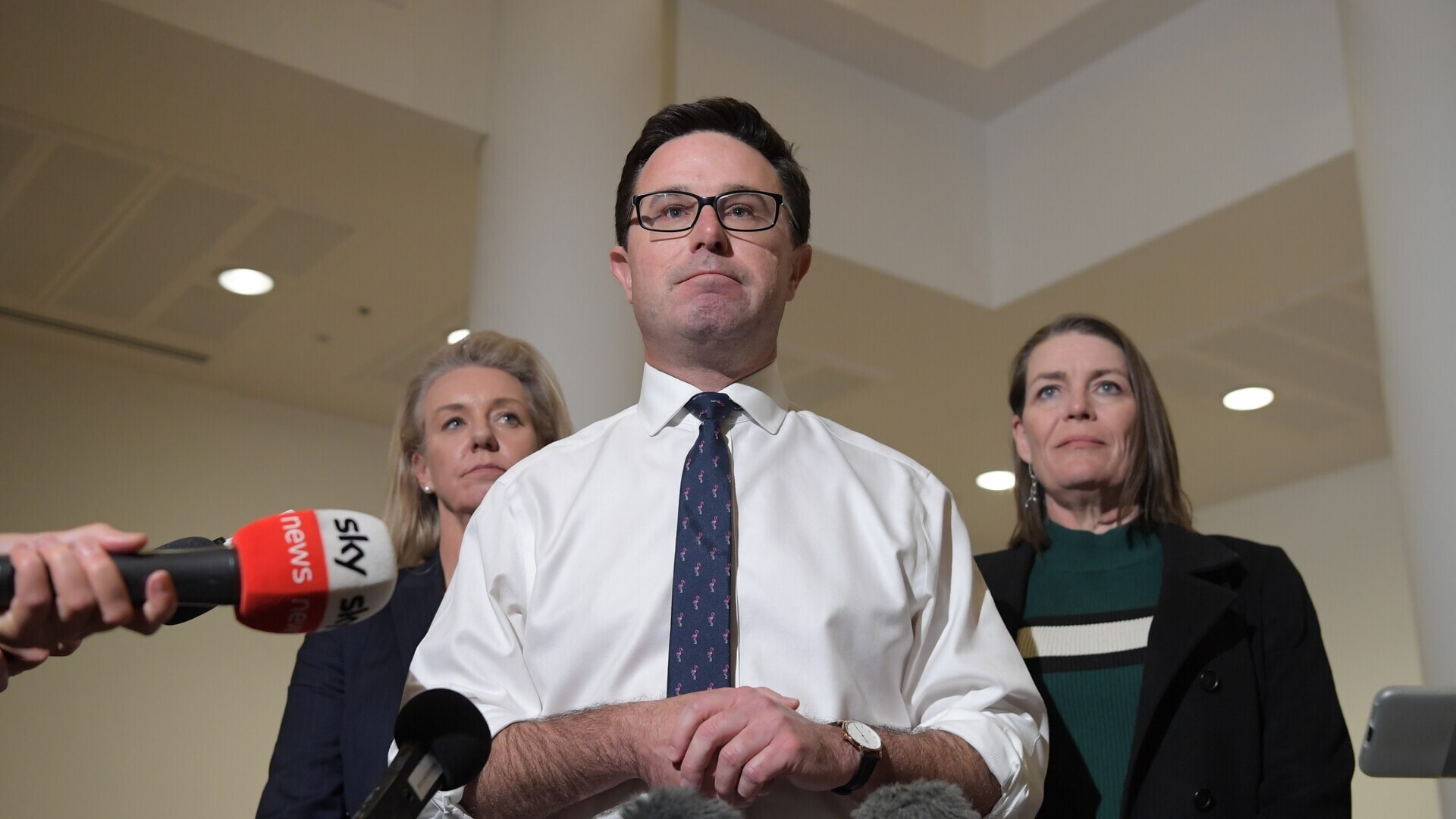
The chief reason these people did not support Labor, you can safely presume, was that they did not regard Anthony Albanese and Jim Chalmers as competent economic managers through a cost-of-living squeeze.
It was Bill Clinton’s strategist James Carville who coined the line “it’s the economy, stupid”, which Clinton used to great effect in the 1992 campaign where he relegated George Bush Snr to one term as president.
If they ever stop fighting, ever stop talking about themselves, the once-united Coalition could do worse than write these four simple words on a piece of paper and stick it on the wall at party headquarters.
More Coverage
Originally published as Dummy-spits and kneejerk panic: What’s behind the Coalition split | David Penberthy





